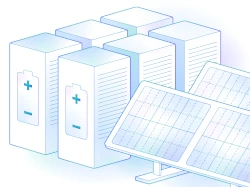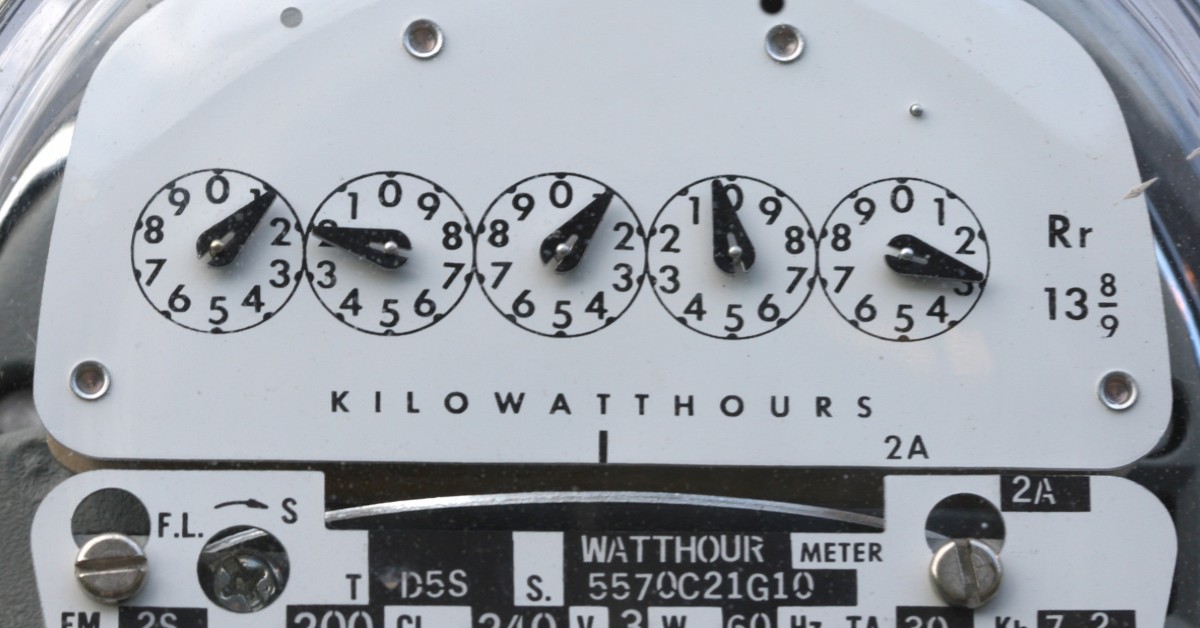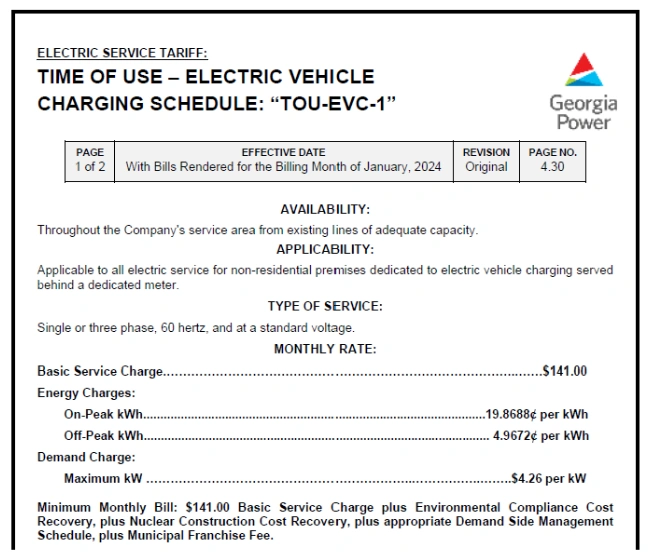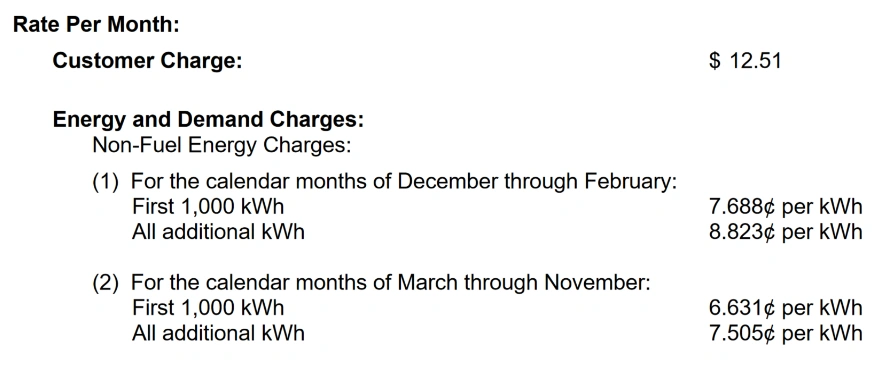IMPORTANT MONTHLY UPDATES & ANNOUNCEMENTS
This month, we cover updates to Georgia Power and Con Edison, highlight significant rate increases for Eskom customers in South Africa, and explain what rate adjustments are and how we include them in our rate schedules.
Georgia Power Rate and Avoided Cost Updates
Nuclear reactor Unit 3 for Plant Vogtle achieved commercial operation last month, and customers will begin footing the bill this month as $2.1 billion in capital costs are transferred to the base electric rates. Overall blended average rates increased by 6.8% — this increase comes after a 4% retail rate increase went into effect in March as part of a total 12% rate increase that will conclude in 2025 and after a 70% increase to fuel costs in July added an extra $27 per 1,000kWh each month. Moreover, customers can expect another rate increase once Unit 4 achieves commercial operation sometime at the end of this year or early 2024. It is unknown how much rates will increase upon completion of Unit 4.
There is good news, however, for Georgia Power solar customers. The Georgia Public Service Commission published its 2023 Energy Budget and the updated avoid cost projections for the new year, and, based on these projections, solar customers will receive greater value for their exported energy. Comparing the previously published avoided cost projections to the new ones, solar customers enrolled in the new RNR-Instantaneous Netting program will receive, on average $0.04132/kWh for their excess energy exports — a 60% increase from the previous $0.02569/kWh that was forecasted in July 2023.
RNR-Instantaneous Netting customers also receive a Renewable Generation Adder of $0.04/kWh in addition to the avoided energy costs listed above.
Lastly, like many other utilities across the country, Georgia Power is engaged in improving its grid’s electrification and offering more electric-friendly options. Georgia Power’s new “TOU-EVC-1” commercial electric vehicle (EV) rate schedule is one such option. This rate schedule is slated to go into effect in January 2024, and it will be Georgia Power’s first non-residential EV rate schedule for premises dedicated to EV charging:
Con Edison’s Multi-Year Rate Increases
This month, the first of three scheduled rate updates went into effect for Con Edison. Rates for residential and commercial customers alike increased by approximately 9% this month, with increases of 4.2% and 1.4% scheduled for January 2024 and 2025, respectively. These rate increases are part of an $11.8 billion investment in clean energy that the New York Public Service Commission greenlighted in July. According to Tim Cawley, Chairman & CEO of Con Edison, the goal of this clean energy investment is to “accommodate increased demand as New Yorkers electrify their vehicles and the heating in their homes and businesses,” thereby further reducing the state’s reliance on fossil fuels. As part of the approved rate tariff filing, 7% of energy revenue requirements were transferred to demand revenue requirements, resulting in lower $/kWh delivery charges and higher $/kW delivery charges.
Exorbitant Eskom Energy Increases
The problems that Eskom customers have faced are numerous due to energy shortages and mismanagement, among other things. In 2022, a 20.5% rate increase was approved and implemented. Then, in February 2023, Eskom implemented level 6 load shedding for an indefinite period to reduce energy demand down to supply levels. Level 6 load shedding involves controlled blackouts to remove 6,000 MW from the national grid, resulting in approximately 37% of grid users losing power for up to 30 hours over 4-day periods.
Moreover, new rate increases were approved by the National Energy Regulator of South Africa (NERSA) to increase rates by up to 18.65%:
Eskom serves roughly 17 million people, and because Eskom is South Africa’s largest electricity generator, many city municipalities are forced to raise their rates following Eskom’s update. For example, City Power Johannesburg and the City of Tshwane raised their electric rates by 15% to keep up with increasing generation costs from Eskom, while the City of Cape Town increased its electric rates by 17.1%.
ETB users can find these South African utilities updated with the new rate increases in our platform.
New Utility Roundup
In August, we added a dozen new utilities for several states and countries, bringing the total number of utilities in our database close to 2,000! This number serves as a good indicator of the number of growing solar opportunities and the number of times our data & services team has worked on requests from users. ETB is a user-driven platform, and almost every utility and rate we’ve created was requested at some point. If there is ever a utility or rate that you need that is not already in ETB, then please reach out to us at utilityraterequest@energytoolbase.com, and we’d be happy to add in whatever is needed!
- United Electric Cooperative – PA (Pennsylvania)
- Hopkinsville Electric System (Kentucky)
- Taiwan Power Company (Taiwan)
- David City (Nebraska)
- Holly Springs Utility Department (Mississippi)
- Ouachita Electric Cooperative (Arkansas)
- Grand River Dam Authority (Oklahoma)
- Midwest Electric Cooperative Corporation (Nebraska)
- J-A-C Electric Cooperative (Texas)
- City of Safford (Arizona)
- Dalkraft AB (Sweden)
Did You Know? – Adjustments and Riders
Along with the base tariff charges, utility customers are often billed additional adjustments (or riders) each month. These additional charges are used for things like funding energy efficiency or low-income assistance programs, recovering costs incurred by natural disasters, or collecting additional funds for infrastructure improvements. The most common type of adjustment is the fuel cost adjustment (FCA), a pass-through charge used to recover the costs associated with purchasing fuel for generating energy. For most utilities, the FCA is updated monthly to match the ever-shifting costs of energy sources like natural gas, which makes the FCA a big reason why bill totals fluctuate monthly.
For example, here are the base rates for Duke Energy – Florida’s RS-1 rate schedule:
Here is a list of the additional charges found further down in the tariff that must be included in a calculation of the total rate:
If your calculation of a customer’s total electric rate includes the base tariff charges but does not include the additional charges billed to customers, then you will see “discrepancies” when comparing your total rate to ETB because ETB’s total rates include all applicable billing components in addition to the base rates.
To see what comprises a total rate in ETB, select “View Rate Schedule” in the Energy Use Profile after selecting a rate, then click into the rate schedule charges to see each individual line item that makes up the total rate:







